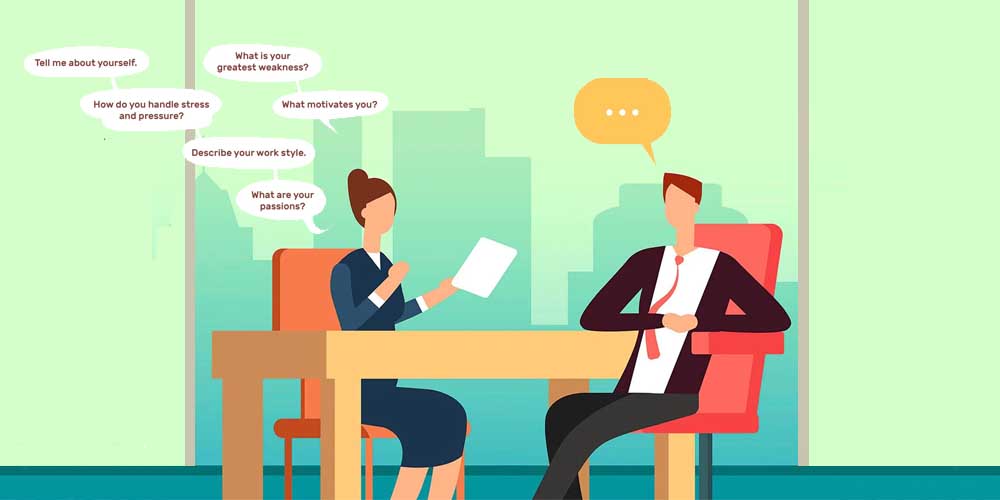
How to Build an Interview Agenda to Conduct Job Interviews
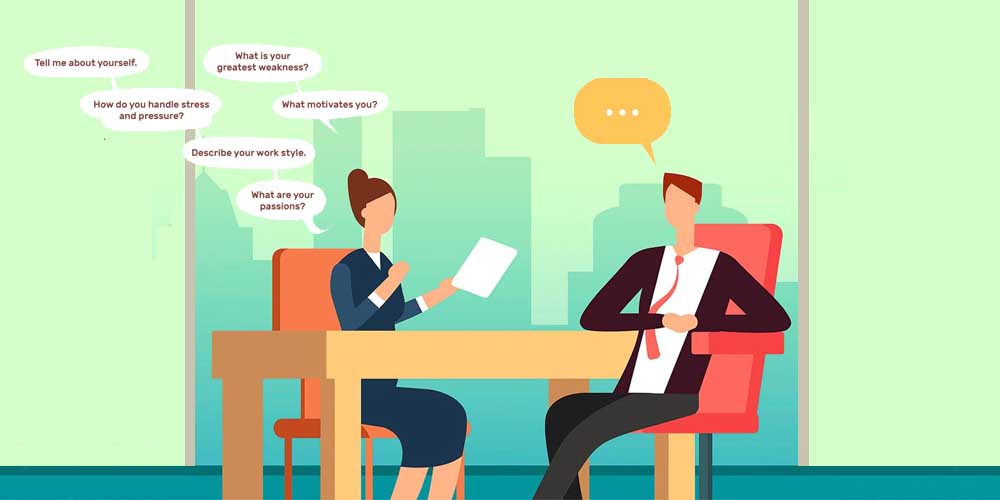
Planning is crucial when you get ready for a job interview to know everything about the candidate and accelerate the hiring process. It’s best to prepare yourself weeks in advance to address all relevant topics for the position you need to fill. This is why configuring an Interview Agenda is crucial not to miss any point during the interview.
How to Build an Interview Agenda to Conduct Job Interviews
What Is an Interview Agenda?
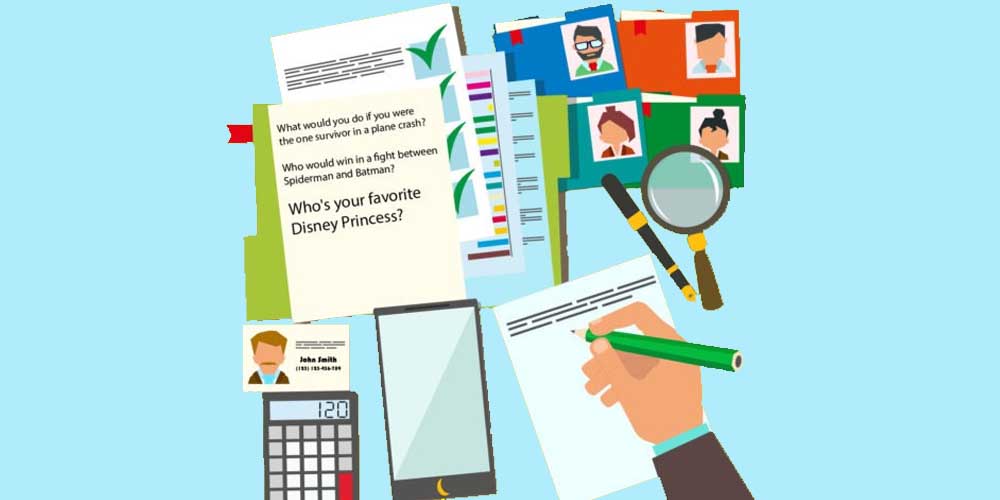
An interview agenda is a written document that hiring managers use to organize and carry out interviews during the hiring process. The schedule mandates the entire process, which contains personal and professional information about potential candidates, crucial questions to evaluate their skills, and notes managers take when interviewing. Effective interviews follow a particular pattern that is indicated in the agenda.
What Basic Elements Should Have Interview Agendas?

Regardless of the industry in which your organization develops its activities, interview agendas are almost the same, containing the following information:
The candidate’s personal and professional information, including education, previous employment, skills, experience, and interests.
The interviewer’s information, such as name, department worked in, and whether or not there are multiple interviewers.
Questions that the candidate must answer and notes on follow-up questions.
Additional comments, overall impressions, and the likelihood of pursuing a second interview.
Benefits of Using an Interview Agenda
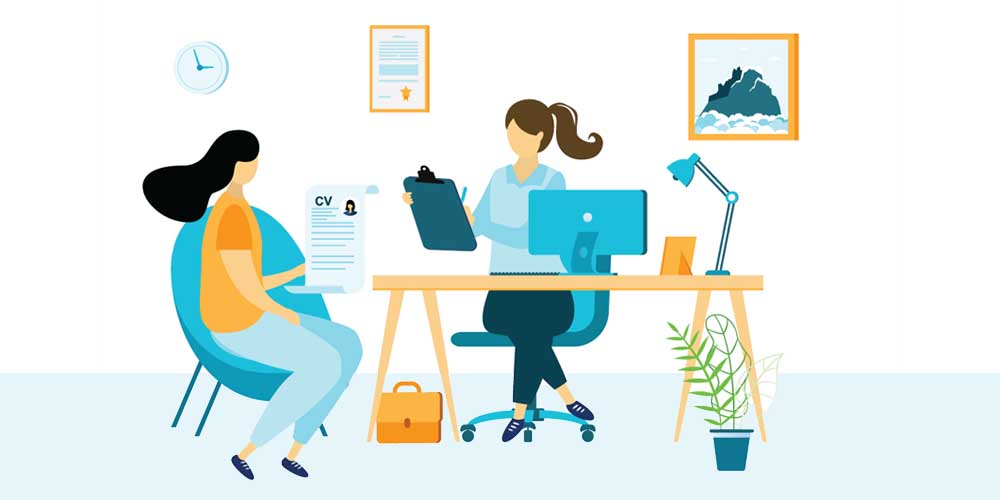
In addition to providing you with enough time to carry out an integrated interview, an agenda gives you the following benefits:
An informational interview agenda provides a structured outline that guides you through the several stages of the interview. This way, you ensure you follow a prebuilt path when interviewing all candidates.
It gives you specific questions for specific positions. You don’t need to ask the same questions all the time. An interview schedule contains the questions you can ask to keep the conversation going.
It provides an informative layout that is easy to skim. You don’t want to spend minutes seeking information on a file. This agenda facilitates you to access information.
It accelerates the interview process. Interviews can often become problematic if you or the candidate use unnecessarily complicated words or ramble on topics. An agenda gives you one-liner questions that go straightforwardly to the point.
You can monitor many candidates at once. Generally, hiring processes entail several candidates. With an agenda, you, as a recruiter, can measure qualifications with the same criteria and monitor them all together.
How to Perform an Interview Schedule

Recruiters can build an interview agenda in five simple steps to be prepared for the interview, boasting proper preparation to complete the process successfully.
Study the Candidate
Any interviewer must study and analyze candidates to gain an overall understanding. This way, they are prepared before the whole process begins and can set a proper timeline for the interview.
Building Your Opening
When candidates appear for a job interview, they hope the interviewer says an opening statement through which they discuss the position and why they're interested in interviewing them. In other words, an opening allows you to communicate the critical details of the job to the prospect.
Configure the Questions You Consider Relevant
Questions are the core of the hiring process since they reveal who the person is, the applicant's ideas, and whether they’re qualified for the job. Include general questions, lighter questions, and more specific questions.
Consider a Section for Notes
A space where you crete additional notes about the interview is essential to determine the particular characteristics of the applicant. You’ll be able to write down anything you woud like to remember about the interview and the candidate.
Plan a Closing Statement
In the closing statement, you can discuss the next steps of the process and even give applicants time to ask questions. This way, you and they can discuss new aspects that have emerged. Moreover, you should maintain the rapport of the meeting and thank candidates for their time.
Interview Agenda Sample
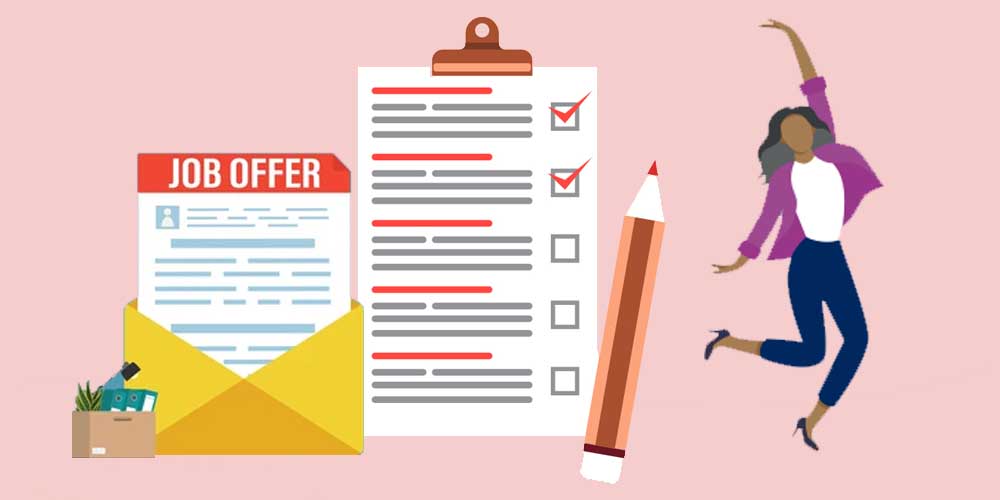
Here’s a basic example of what an interview agenda should contain and that you can consider when creating or editing templates:
Opening statement: Introduce yourself and discuss basic information about the role and the company.
Topic 1: Introduce the topic to the candidate and provide information on how it's related to their prospective role.
Question 1: [State the question.]
a. [Follow-up question]
b. [Follow-up question]
[Notes about the candidate's answers]
Question 2: [State the question.]
a. [Follow-up question]
b. [Follow-up question]
[Notes about the candidate's answers]
Closing remark: Briefly summarize the interview. Maintain a positive rapport and explain what the candidate should expect from the next steps of the process. Remember to ask the prospect whether they have any questions for you.
Interview Agenda Templates
The quickest way of preparing an interview agenda is to use a template containing prebuilt sections for personal and professional information, the necessary questions for the discussion, and additional space for notes and comments.
Editing the templates we’re giving you below require Microsoft Office software. If you don’t have it already, you can quickly get a reliable copy of Microsoft Office 2021 Professional Plus Key Retail Global on our website. With the classic Microsoft applications, you can easily edit and create your interview schedule and leverage any minute of the interview from the beginning.
Brief Interview Agenda Template
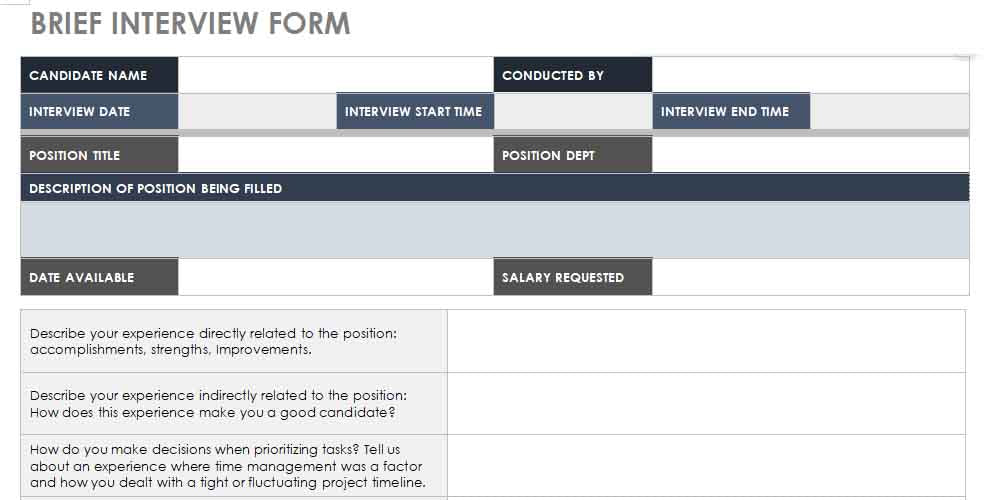
Download it from Smartsheet.
This template is a well-organized document containing the necessary space to integrate the primary information of the candidate and interviewer. You can also describe the position required and how the prospect fits the requirements. The most vital point of this template is that it has prebuilt questions for any industry; you can use them no matter what job you're offering. Of course, as it's an MS Word document, you can add additional questions to conduct the interview better. Lastly, at the bottom of the document, you will find a section to evaluate work experience, skill set, professionalism, attitude, education, and enthusiasm.
Post-Tender Interview Agenda Template
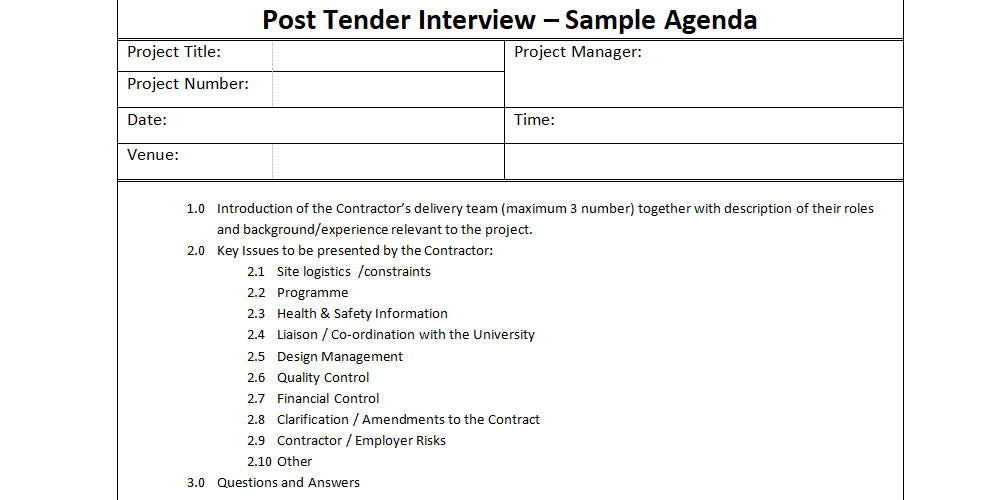
Download it from Examples.com.
This template is focused on evaluating possible cooperation with contractors who must deploy teams with different roles and experiences for the project. This document does not contain specific questions for a particular candidate profile or job position. Instead, it integrates vital issues to be evaluated by the interviewer and presented by the contractor. This way, your organization can discuss quality control, logistics, management, and other factors affecting its performance. This template will help you quickly identify the potential prospect's strengths and weaknesses.
Final Thoughts
The questions asked during the hiring process are crucial to determine if candidates are the right ones for the positions. An interview agenda or a group interview agenda is the proper document for conducting a successful interview that addresses essential points of the candidate, allowing you to gain knowledge and save time for better evaluation and rapport.
Remember to browse our blog to discover other necessary topics to discuss to increase your brand’s awareness and development. On RoyalCDKeys, you’ll find multiple templates and essential information for the success of your organization.















